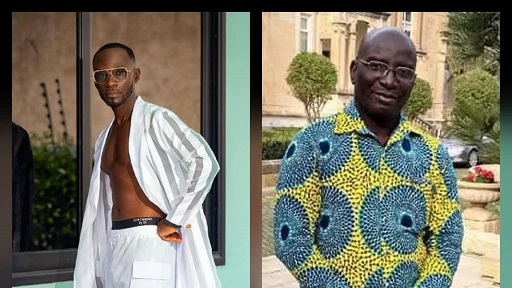THE global music industry, including that of Ghana, has undergone a significant transformation in recent years, with the rise of streaming platforms revolutionising the way music is consumed and monetised.
Musicians across the world have jumped on the bandwagon, leveraging these platforms to reach a global audience and generate revenue.
In Ghana, for instance, the known tradition of music consumers buying Compact Disc (CDs) has been buried with musicians selling their songs on streaming platforms.
However, a growing debate has emerged about the sustainability of this model, particularly with its means of creating good revenue for musicians.
It is in this light that some industry stakeholders, such as music producer/engineer Fred Kyei Mensah, popularly known as Fredyma, and filmmaker Socrate Safo, are advocating a return to traditional formats, CD sales.
Socrate Safo has been a vocal proponent of mixing streaming with CD sales. According to him, while streaming platforms have their benefits, they should not be relied on solely as a source of income for musicians.
He argues that CDs still have a residual market, particularly among older demographics who own CD players and are willing to pay for music.
In an interview with the Daily Graphic, Safo noted that musicians should tap into this market, rather than relying solely on streaming platforms.
“Nobody, including myself, who has advocated revisiting CD sales is suggesting that musicians abandon their current strategies and focus solely on CDs. Instead, the idea is that CDs still have a residual market that musicians can tap into.
“By diversifying their distribution channels, musicians can reach different segments of consumers. While the youth may be more inclined towards streaming due to their familiarity with digital platforms, there are still many people who own CD players and would buy them if they were available.
“The issue is not that CDs are obsolete, but rather that musicians are not producing them anymore, which is why people are not buying them. By exploring all available markets, musicians can maximise their reach and revenue.
CD Success
Socrate’s argument is supported by the success of some Ghanaian musicians who have managed to generate significant revenue from CD sales. Wan-O, a popular musician, revealed that he earns up to GH₵30,000 monthly from selling CDs of his own music at the Accra Mall.
He attributes his success to a well-planned marketing strategy, which includes creating albums and treating his act like a label.
However, not everyone agrees that CD sales are a viable option for musicians. Okyeame Kwame, a respected rapper, argues that piracy is a major obstacle to physical music sales. (Related article: Streaming platforms making musicians poor –Socrate Safo)
According to Kwame, pirates can produce and sell CDs at a fraction of the cost, undercutting musicians who invest heavily in production and promotion. Kwame believes most musicians avoid printing CDs because of economic limitations, not because they are unwilling to do so.
He explained that the cost of producing and distributing physical copies of music is high, and the returns are often not worth the investment.
Kwame's argument highlights the complexity of the issue. While some musicians may be able to generate revenue from CD sales, others may not have the resources or market to make it viable. The music industry is a diverse and ever-changing landscape, and what works for one artiste may not work for another.
That is why the debate over CD sales versus streaming platforms shouldn’t be limited to which format is more lucrative, but about finding a sustainable business model that works for musicians.
Hybrid
Robert Klah, a creative entrepreneur, believes the solution lies in adopting a hybrid approach that combines traditional formats with modern digital tools. According to Klah, streaming platforms offer reach, data, and global accessibility, while physical formats provide tangible value, direct fan engagement, and unique monetisation opportunities.
Presently, the challenge for musicians and industry stakeholders is to understand their audience and adopt the most practical and profitable approach for their market.
This may involve experimenting with different formats, such as vinyl records or digital downloads, or finding new ways to monetise music, such as through live performances or merchandise sales.
Ultimately, the conversation around CD sales and streaming platforms should not be a “give and take” approach. Rather, it should be about finding a pragmatic solution that allows musicians to fully enjoy the sweat of their labour.
As Okyeame Kwame believes, the industry needs to take pragmatic measures to solve the killer burden of piracy and drive a good policy that benefits musicians.
Sustainable model
The rise of streaming platforms has transformed the music industry, offering new opportunities for musicians to reach a global audience, though debatable for some people.
However, the discussion of CD sales versus streaming platforms highlights the complication of the issue and the need for a sustainable business model that works for musicians.
By adopting a hybrid approach that combines traditional formats with modern digital tools, musicians and industry stakeholders can work together to find a solution that benefits everyone.
The conversation should not create a platform for players to make the usual “noise” without a productive solution, but should drive a good policy that will make Ghanaian musicians fully enjoy the sweat of their labour.

